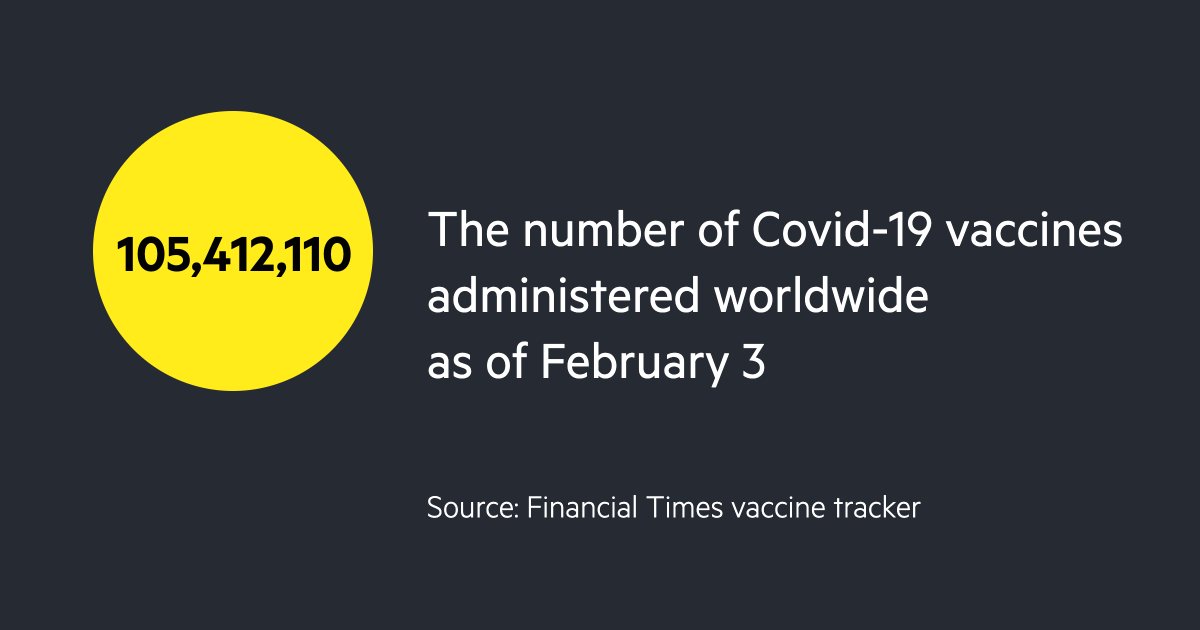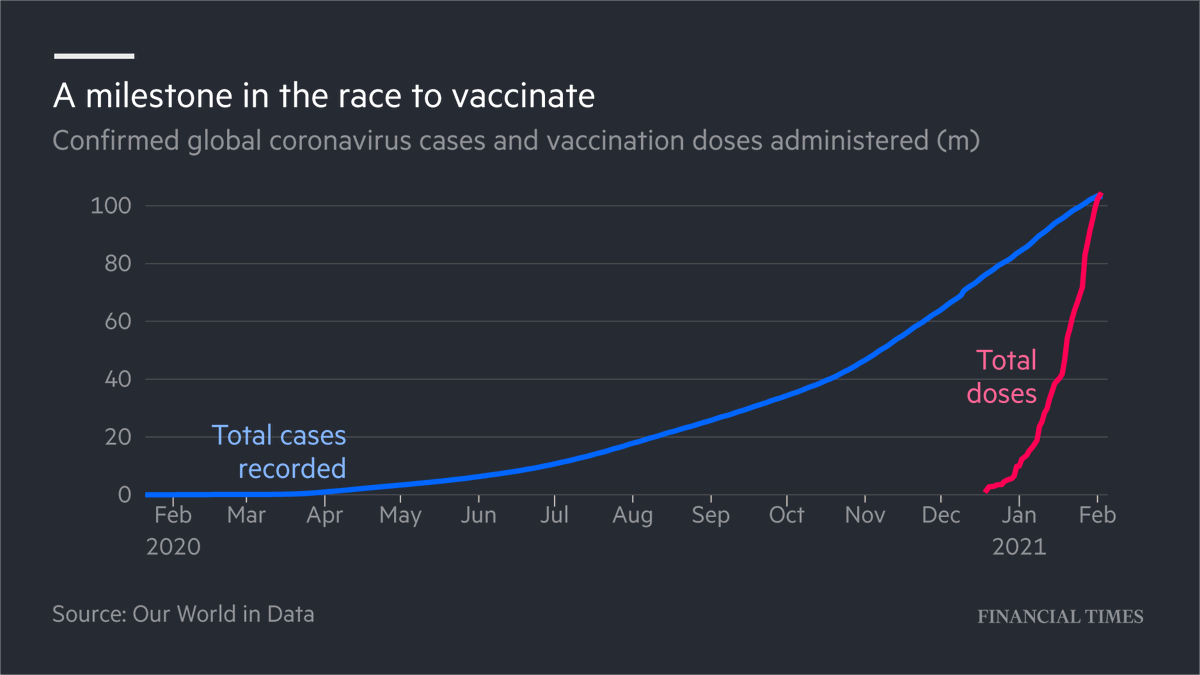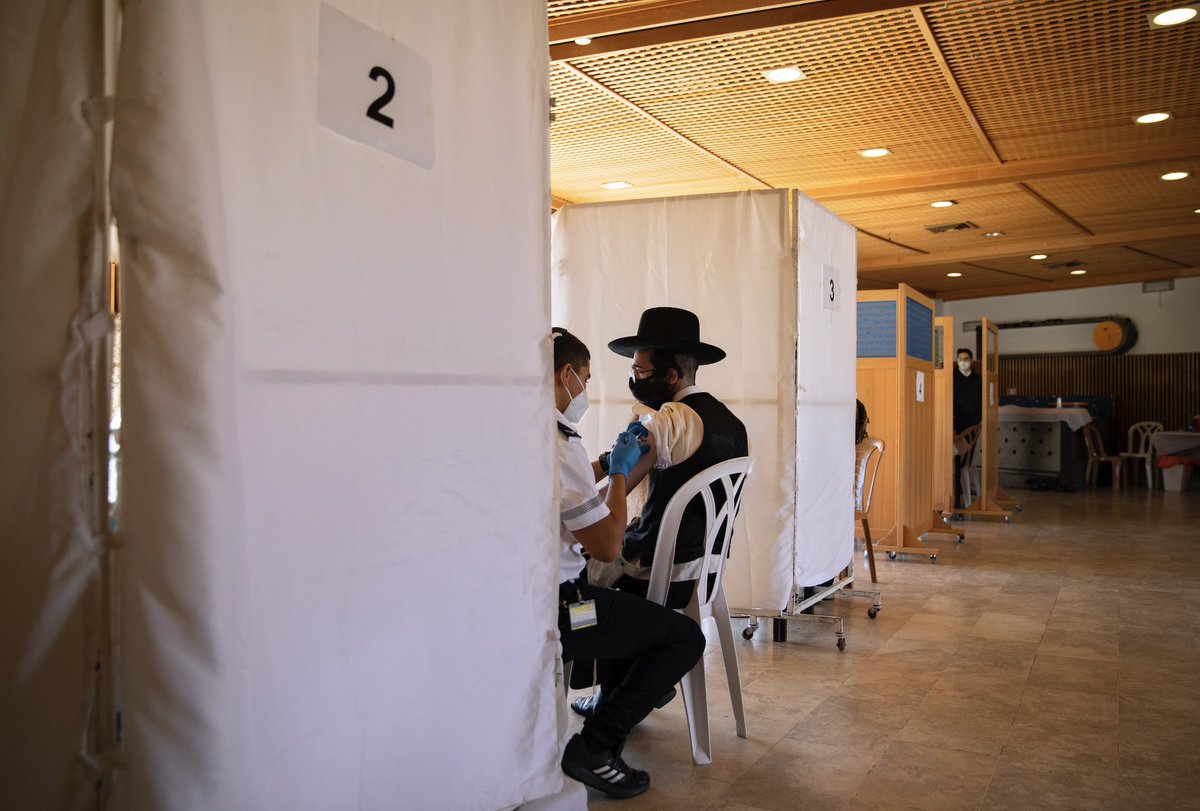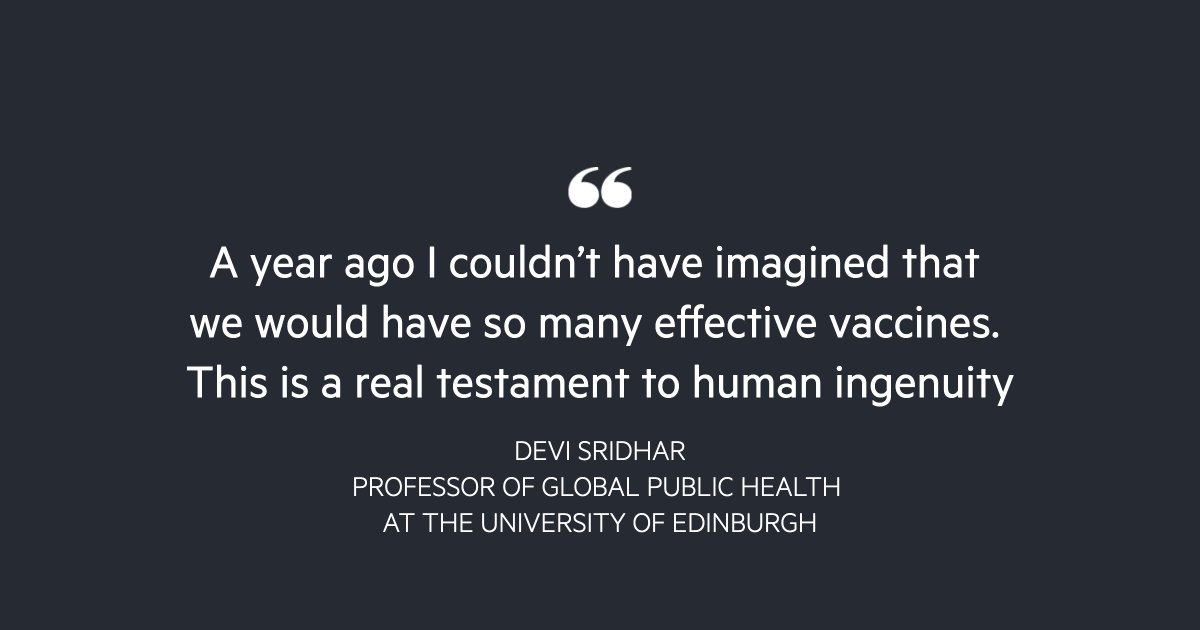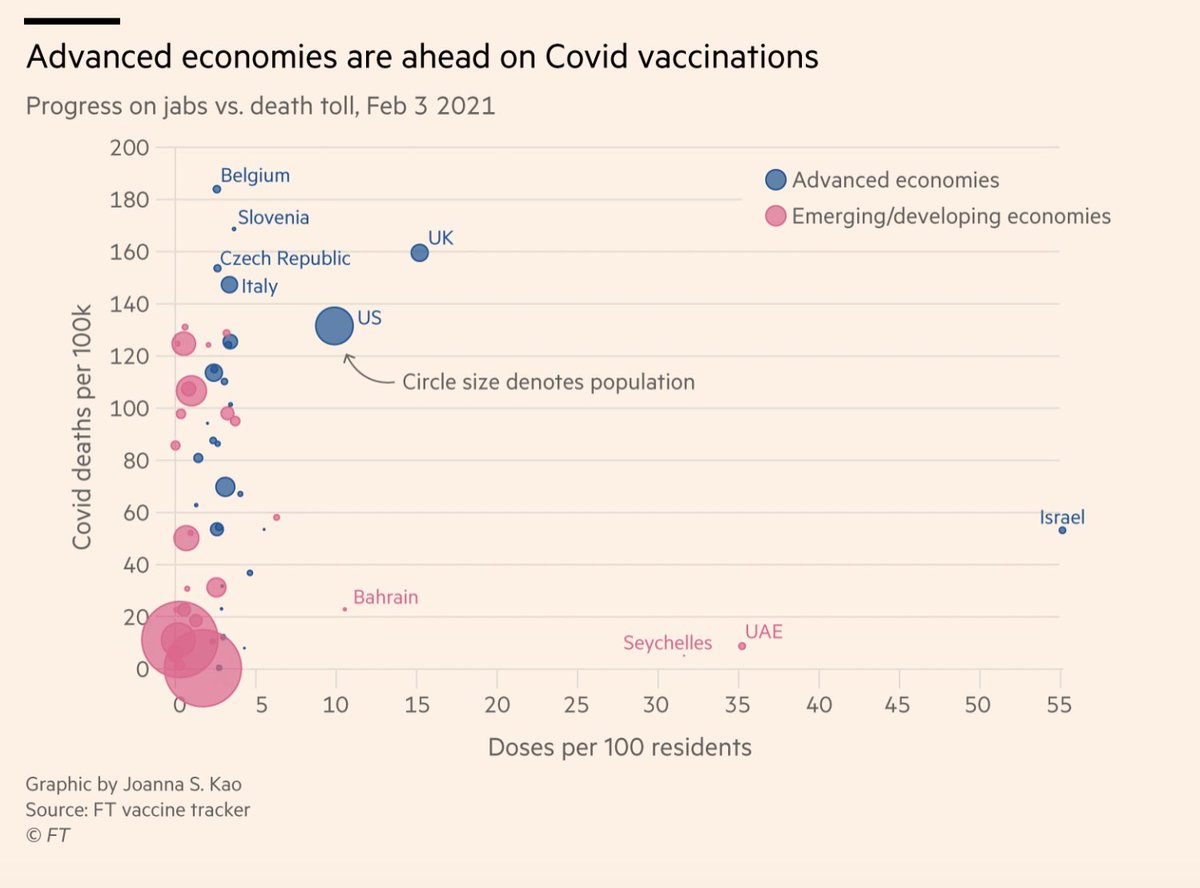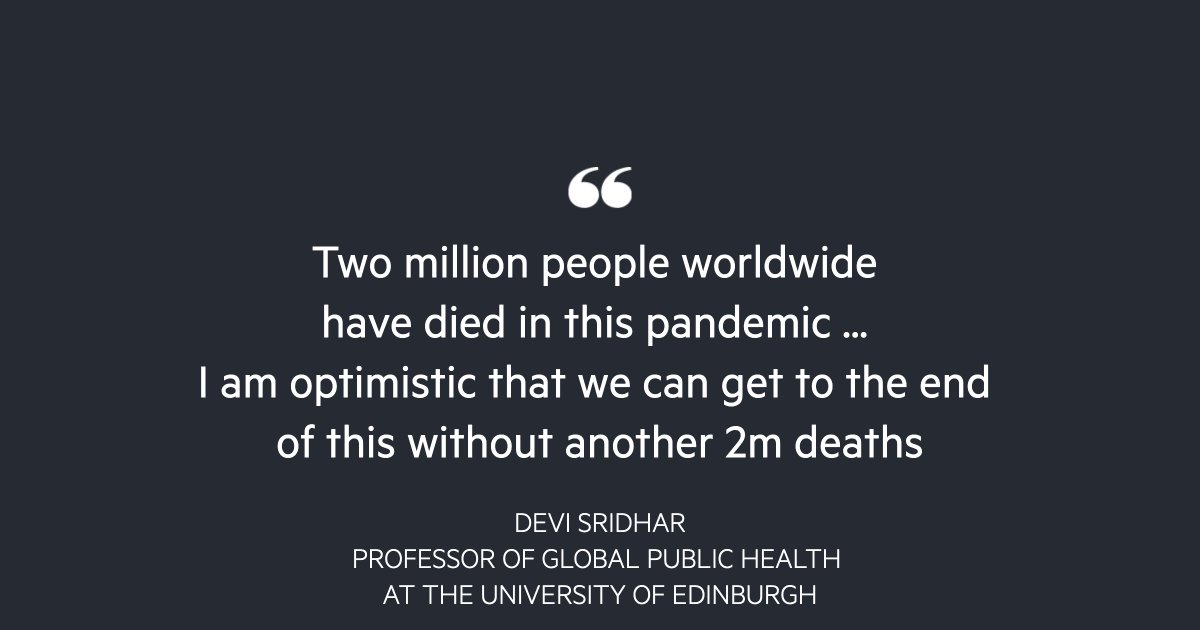 Positive news alert: The number of Covid-19 vaccinations globally has surpassed the total number of confirmed cases.
Positive news alert: The number of Covid-19 vaccinations globally has surpassed the total number of confirmed cases.According to our vaccine tracker, over 105m doses have been administered so far, while the number of confirmed cases is just over 103m https://www.ft.com/content/e29efb8b-46ec-4815-98aa-458deffcd896
While vaccination rates are accelerating quickly, the rise in cases of Covid-19 are slowing, though that is due to measures other than vaccines, such as lockdowns and social distancing policies https://www.ft.com/content/e29efb8b-46ec-4815-98aa-458deffcd896
Israel is the only country where vaccines are already reducing transmission because inoculation has been rolled out more extensively and rapidly than anywhere else in the world https://www.ft.com/content/e29efb8b-46ec-4815-98aa-458deffcd896
But vaccines will soon make a big difference to transmission, at least in wealthy countries where billions of doses will be available over the next few months https://www.ft.com/content/e29efb8b-46ec-4815-98aa-458deffcd896
We don't know when the world will be immunised. Confirmed purchases of Covid-19 vaccines amount to 7.2bn doses and 5.3bn of them have been bought by high-income and upper-middle-income countries. Most of these vaccines will require two jabs https://www.ft.com/content/e29efb8b-46ec-4815-98aa-458deffcd896
The Wellcome Trust estimates that not until 2023 or 2024 will everyone who needs a vaccine be able to receive one. Others think it could be sooner than that if wealthy countries and organisations donate excess doses to poorer nations https://www.ft.com/content/e29efb8b-46ec-4815-98aa-458deffcd896

 Read on Twitter
Read on Twitter